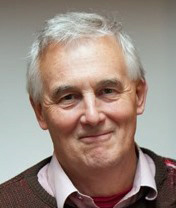Mental Health Matters - news after Rio
 Prof Chris Dowrick the new chair of the WONCA Working Party on Mental Health (WWPMH) intends a regular series of bulletins ("Mental Health Matters") to keep you all in
touch with latest developments and activities for our Working Party.
Here is news following on from Rio.
Prof Chris Dowrick the new chair of the WONCA Working Party on Mental Health (WWPMH) intends a regular series of bulletins ("Mental Health Matters") to keep you all in
touch with latest developments and activities for our Working Party.
Here is news following on from Rio.
For the WWPMH 2016-18 Activity Plan see separate news item.
Dear colleagues
1. New officers.
I am delighted to welcome Kim Griswold from Buffalo NY as our regional vice-chair for North America; and Ray Mendez from Chicago as our WONCA young doctors representative. All we need now is a regional vice-chair for South Asia, and our officers' group will be complete.
2. mhGAP Training in Rio.
On November 6 and 7, from 9:00 to 17:00h, a course for training trainers on Mental Health Gap Intervention Guide was held in the Social Medicine Institute of the University of the State of Rio. It was led by Henk Parmentier, Jill Benson and Sandra Fortes from the WONCA Working Party for Mental Health. It was sponsored by PAHO-Brazil and organized by LIPAPS/UERJ with support from the Municipal Health Secretary of Rio de Janeiro. There were a total of 35 participants, including 10 family doctors and nurse residency supervisors and 10 mental health professionals from the Matrix Support Teams, both groups from the Municipal Health Secretary. There were also teachers (Psychiatrists, Psychologists and Family Doctors ) from universities and Municipal Secretaries in the State of Rio de Janeiro, Maranhão, Ceara, Minas Gerais and Brasilia. PAHO was represented by its mental health coordinator, Daniel Elia. There were also managers from the Coordination of Mental Health and from some Programmatic Areas in city of Rio de Janeiro.
The training began with the introductory part from the mhGAP training modules. The development and implementation of psychosocial intervention in primary mental health care was an aspect that was considered especially relevant. Communication skills were also highlighted as important tools in Primary Mental Health Care. The following themes were selected for discussion on Monday afternoon and Tuesday morning: depression, alcohol problems, medically unexplained symptoms (MUS) and anxiety disorders). In these three periods, role playing was frequently used and the students were highly motivated to participate and discuss. Cultural aspects involving the presentation and treatment of these conditions were also reinforced. In the final training period, Henk encouraged participants to present key aspects of the three themes that were discussed: depression, alcohol anxiety with MUS. Two groups presented role play on specific aspects of these disorders and one led a discussion registered on a flipchart. All three groups participated enthusiastically and Henk highlighted the most important aspects to be considered in training.
The slides are being translated into Portuguese. The group was encouraged to use mhGAP interventions in their routine trainings on Primary Mental Health Care.
> more about mhGAP
3. Linking primary care and community resources.
Juan Mendive, our Treasurer, has agreed to represent the Working Party on an exciting new research project. This project, funded by the European Commission, is designed to link primary care with community assets in order to promote resilience, well-being and equality. It proposes five key outputs:
• A dynamic and evolving scientific network of experts and stakeholders in social prescribing for mental health
• A database of innovative and successful initiatives in social prescribing from primary care
• A review of social prescribing practices and theoretical framework for programmes
• An evaluation framework for social prescribing initiatives
• A consensus guidance document for implementation and evaluation
This is very relevant to our own vision for primary mental health care. We can look forward to regular updates from Juan as the project progresses.
4. GLOW
I have accepted an invitation from the World Federation for Mental Health to join the steering committee of the GLObal Compact on Millennial Mental Health in the Workplace (GLOW). This is an important initiative on mental health and employment, also supported by WHO and World Bank, and is particularly targeted at young people and small to medium sized companies.
5. Integrating mental health and primary care.
I have also accepted an invitation from WHO to input into the development of a package of guidance on the integration of mental health in primary health care, with special focus on the countries of the Eastern Mediterranean region of WHO. Colleagues from WWPMH EMR are kindly offering me guidance on this very significant policy development, which is likely to have wide implications within and beyond EMR.
With my best wishes to you all,
Chris Dowrick